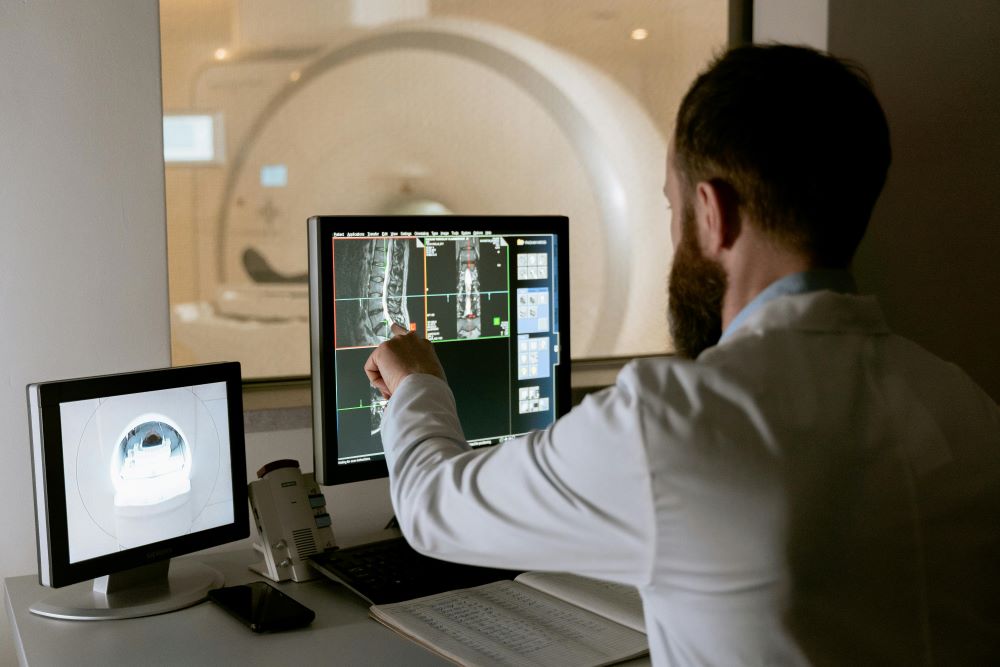AI-based pathology platform poised to advance lung cancer diagnosis and treatment.
Researchers at the University of Cologne’s Faculty of Medicine and University Hospital Cologne have developed a groundbreaking digital pathology platform powered by artificial intelligence (AI). Led by Dr. Yuri Tolkach and Professor Dr. Reinhard Büttner, this AI-based platform has the potential to transform lung cancer diagnosis and treatment by automating the analysis of tissue sections with unprecedented speed and accuracy.
Lung cancer remains one of the most prevalent and deadly cancers worldwide. According to the World Health Organization (WHO), it is the leading cause of cancer death, responsible for approximately 1.8 million deaths in 2020 alone, representing around 18% of all cancer-related deaths globally. In the United States, the American Cancer Society estimates that lung cancer will account for about 238,340 new cases and 127,070 deaths in 2023.
While the expected survival rate for lung cancer cases is roughly five years, survival rates vary widely, and the prognosis depends largely on the accuracy of pathological examinations, which guide treatment decisions. Generally, pathologists rely on manual microscope-based methods to evaluate tissue samples for signs of harmful alterations that can inform personalized treatment plans. However, these methods are time-consuming and susceptible to changes, often leading to delays in diagnosis and treatment.

The digital pathology platform developed by the Cologne team marks a major shift in how lung cancer tissue is analyzed. Using cutting-edge AI algorithms, the platform can digitize tissue sections and conduct a thorough analysis directly on a computer screen, eliminating the need for traditional microscopes. This not only speeds up the diagnostic process but also enhances the accuracy of the data collected by detecting minute details that could be overlooked by the human eye.
One of the most remarkable features of this AI-driven platform is its ability to extract additional layers of information from tissue samples that would not be accessible without advanced technology. For instance, the platform can identify subtle molecular changes in the cancer cells that may indicate a patient’s response to treatment or suggest alternative therapies. This level of insight could enable practitioners to tailor treatments to each patient’s unique cancer profile.
“The platform can significantly enhance the quality of diagnosis while also providing new types of information about a patient’s disease,” explained Dr. Tolkach, lead author of the study. “For example, we can better understand how a patient is responding to treatment based on the molecular changes identified in their tissue samples. This opens up exciting possibilities for improving patient outcomes.”
As AI-based models continue to advance, similar platforms could be developed for other types of cancer and medical conditions, providing clinicians with powerful tools for faster and more accurate diagnoses. Furthermore, the ability to integrate AI into routine clinical practice may help reduce the workloads of pathologists.
The work being done at the University of Cologne offers new hope for patients facing the challenges of a lung cancer diagnosis. With more research and testing, AI-based platforms like this one may soon become the frontline method for diagnosis and treatment in hospitals around the world.


Join the conversation!